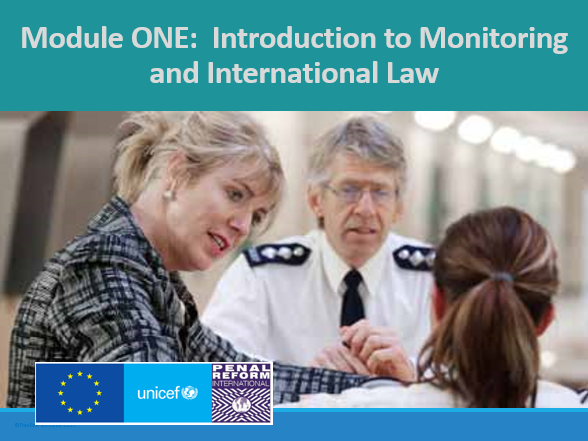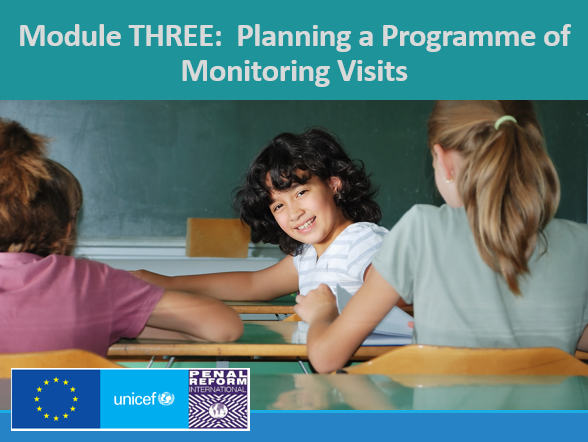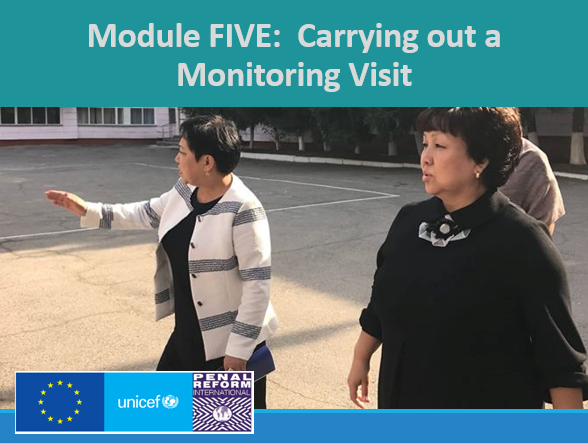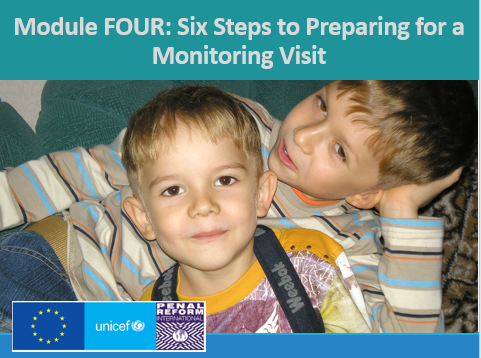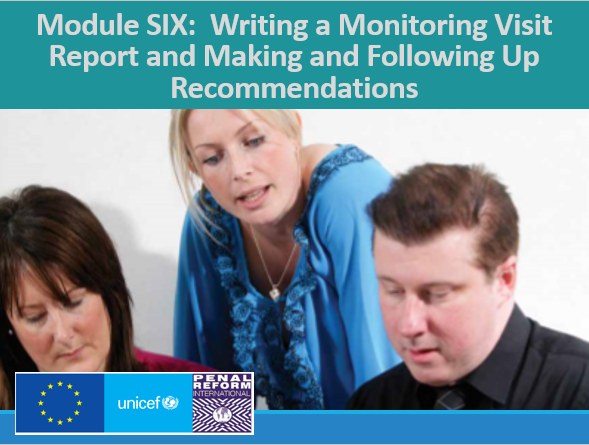Monitoring Places where Children are Deprived of their Liberty
by Professor Pauline McCabe OBE
International Criminal Justice Advisor and former Prisoner Ombudsman for Northern Ireland
International Criminal Justice Advisor and former Prisoner Ombudsman for Northern Ireland
Welcome!
I am delighted to be the guest trainer on this important on-line training course about carrying out monitoring visits to places where children are living in closed or semi-closed facilities.
This course is based on a Monitoring Toolkit prepared, with the assistance of UNICEF and Penal Reform International to support the introduction of monitoring visits by the Children’s Ombudsman in Kazakhstan. The Toolkit has been written both for new monitors and for more experienced monitors who wish to develop their knowledge. It is intended to supplement, not replace, practical classroom training , coaching and/or mentoring from suitably qualified experts.
Overview
The Monitoring Toolkit is made up of three handbooks. During training, you will read the handbooks and you will be encouraged to become very familiar with the content. You should refer to the Handbooks often when carrying out monitoring visits.
The Training Course is made up of six modules comprising a total of 16 lessons. Modules include PowerPoint presentations; exercises; reading; checklists and assessments. All you need to do is begin by clicking on Module One and follow the instructions which will guide you, step by step, through the course. You can complete the modules at your own pace.
End of Module assessments are included in modules 2 to 6 which you will be asked to complete.
Children deprived of their liberty are entitled to all of the rights that apply to other children and they are particularly vulnerable by virtue of living in closed or semi-closed conditions.
Monitoring visits are an important way of helping to sure that the physical and mental wellbeing of these children are protected and that their treatment complies with the rights granted to children in international law. Those entrusted with this important role have a responsibility to ensure that they always act in a way that is ethical and protective of the children they seek to serve. For this reason, you will be asked. At the end of the training to carefully study and commit to the Training Toolkit Ethical Guidelines and Child Protection Policy.
So now it is time to begin. I do hope that you find the training interesting, helpful and informative.
Please click on Module One when you are ready to begin.
The Training Course is made up of six modules comprising a total of 16 lessons. Modules include PowerPoint presentations; exercises; reading; checklists and assessments. All you need to do is begin by clicking on Module One and follow the instructions which will guide you, step by step, through the course. You can complete the modules at your own pace.
End of Module assessments are included in modules 2 to 6 which you will be asked to complete.
Children deprived of their liberty are entitled to all of the rights that apply to other children and they are particularly vulnerable by virtue of living in closed or semi-closed conditions.
Monitoring visits are an important way of helping to sure that the physical and mental wellbeing of these children are protected and that their treatment complies with the rights granted to children in international law. Those entrusted with this important role have a responsibility to ensure that they always act in a way that is ethical and protective of the children they seek to serve. For this reason, you will be asked. At the end of the training to carefully study and commit to the Training Toolkit Ethical Guidelines and Child Protection Policy.
So now it is time to begin. I do hope that you find the training interesting, helpful and informative.
Please click on Module One when you are ready to begin.
|
THE SIX TRAINING MODULES
|
RESOURCES
|
|
Monitoring Toolkit Handbooks
Support Materials
|

